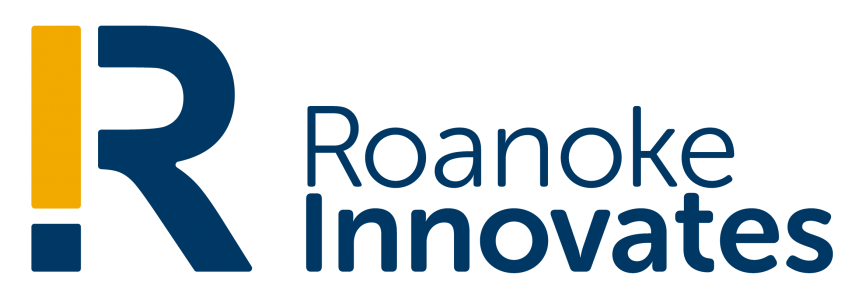New scientific discoveries and medical treatments are improving the health of cancer patients across the globe, but socially and economically disadvantaged groups aren’t receiving the benefits, according to an internationally known oncologist scheduled to speak in Roanoke on Dec. 5.
Addressing social inequalities that limit access to care could make a tremendous difference in people’s lives, according to Ophira Ginsburg, a medical oncologist and former World Health Organization (WHO) official.
Ginsburg will deliver the next Maury Strauss Distinguished Public Lecture at the Fralin Biomedical Research Institute at VTC. The free hour-long presentation, “Social Inequality & Cancer Survival: How Can We Close the Gap?” will take place at 5:30 p.m. Dec. 5 at 2 Riverside Circle in Roanoke.
Through her research, Ginsburg has studied cancer disparities in North America and abroad to help improve cancer survival rates, particularly for women. For Ginsburg, who directs the High-Risk Cancer Genetics Program at New York University’s Perlmutter Cancer Center, cervical cancer is the epitome of cancer disparities. Of the 500,000 women diagnosed each year, 90 percent of deaths from cervical cancer occur in low- and middle-income countries.
“We are still seeing tremendous numbers of women dying of this very preventable disease,” Ginsburg said in a 2018 media interview. “We have the tools and we know how to prevent and cure cervical cancer in all settings now. The good news is, we actually know what to do. The question is: how are we going to we get there?”
Ginsburg, who is also an associate professor at New York University’s Department of Population Health and Department of Medicine, analyzes how public health interventions can improve access to cancer services for women in both low-income countries and ethnocultural minority groups in North America. Since 2004, she has developed global cancer control research and training projects in Vietnam, Bangladesh, and Tanzania.
Drawing on her background as a medical oncologist, Ginsburg uses genetics, epidemiology, and new preventive techniques to develop approaches that link evidence-based public health policies to clinical outcomes.
“Dr. Ginsburg has been recognized as an influential physician thought leader in cancer prevention, screening, and treatment – particularly for cancers in women. Drawing from firsthand experience as a medical oncologist, she understands the challenges that cancer patients face from diagnosis through treatment, and as a result strives to make preventive care more easily accessible for women in less economically stable countries,” said Michael Friedlander, vice president for health sciences and technology at Virginia Tech, and executive director of the Fralin Biomedical Research Institute. “We look forward to welcoming Dr. Ginsburg to Roanoke and hearing her describe how research and implementation efforts worldwide are addressing stark disparities in cancer survival rates with our local community, scientists, clinical partners, and medical students.”
Ginsburg formerly served as the World Health Organization’s medical officer for cancer control in Geneva, Switzerland. In this capacity, she helped build policy and programming frameworks for breast cancer prevention in collaboration with the WHO International Agency for Research on Cancer and other United Nations organizations.
Ginsburg is a fellow of Canada’s Royal College of Physicians and Surgeons, and has received numerous accolades, including being named in The Graduate Institute’s Top 100 Women Leaders in Global Health. She also received the Queen’s University’s Henry Kaufman Memorial Prize, Queen’s University’s Michael Brown Memorial Award in Oncology, and the 2012 Grand Challenges Canada Rising Stars in Global Health award.
She is an advisor to the National Institute for Cancer Control of Vietnam, and a member of the Global Task Force on Radiotherapy for Cancer Control and the Technical Advisory Committee of the Global Task Force on Expanded Access to Cancer Care and Control. She is on faculty at BRAC University, Bangladesh, and the Institute of Cancer Policy at King’s College London, United Kingdom.
In October 2015, she became a technical officer in the Department for Management of Noncommunicable Diseases, Disability, Violence and Injury Prevention at the WHO headquarters in Geneva, where she shaped policy and programming for women’s cancers.
A licensed physician in Canada and New York, Ginsburg has co-authored two books, five book chapters, and 60 peer-reviewed articles. She is a founding editorial board member of the Journal of Global Oncology and the Journal of Cancer Policy. Ginsburg serves on numerous advisory boards, including the Young Professionals Chronic Disease Network and Global Focus on Cancer. She is also a founding member of Women’s Health Equity through Mobile Approaches.
Ginsburg completed her bachelor’s degree in biology at Queen’s University, a master’s in human genetics at McGill University, and a doctor of medicine degree from Queen’s University. She completed her residency training in internal medicine and medical oncology at the University of Toronto, and a postdoctoral fellowship in epidemiology and biostatistics at the Princess Margaret Cancer Center’s Campbell Family Institute for Cancer Research.
The free presentation, named for Maury Strauss, a Roanoke businessman and longtime community benefactor, begins at 5 p.m. with a free public reception at 2 Riverside Circle, Roanoke, followed by the hour-long lecture starting at 5:30 p.m. Maury Strauss Distinguished Public Lectures are webcast live, archived on YouTube, and streamed on Facebook Live.

